Presto is an entry-level brand that manufactures several incredibly popular...
Read More
A pressure cooker is an essential kitchen appliance that uses steam pressure to cook food quickly and efficiently. It’s also commonly used for canning meats, vegetables, and other food items. Canning meats is a process of preserving meat in jars by applying heat and pressure, which kills harmful bacteria and helps to maintain the meat’s quality and flavor.
When canning meats, it’s essential to use a pressure cooker that’s specifically designed for canning and has been tested and approved by reputable organizations such as the USDA. A pressure cooker for canning meats should be large enough to hold your canning jars with enough headspace and should have a pressure gauge that’s easy to read.
Using a pressure cooker for canning meats requires following specific instructions to ensure that the meat is safely and effectively preserved. It’s also important to properly maintain and care for your pressure cooker to ensure that it lasts for years and functions correctly. Overall, a pressure cooker for canning meats is an excellent investment for anyone interested in preserving food and enjoying fresh, high-quality meats year-round.
What is the best pressure cooker for canning meats?
When it comes to canning meats, it’s important to use a pressure cooker that’s designed for canning and has been tested and approved by reputable organizations such as the USDA. Look for a pressure cooker that’s large enough to hold your canning jars with enough headspace and has a pressure gauge that’s easy to read.
Also, make sure the pressure cooker you choose has a reliable safety mechanism, such as a locking lid and a pressure release valve. It’s essential to follow the manufacturer’s instructions carefully to ensure that the pressure cooker is being used correctly and safely.
Ultimately, the best pressure cooker for canning meats will depend on your specific needs and preferences. It’s a good idea to read reviews and do some research before making a purchase to ensure that you’re getting a quality product that will meet your needs.
There are many different brands and models of pressure cookers that can be used for canning meats. However, it’s important to select a pressure cooker that is specifically designed for pressure canning and meets the recommended pressure and processing times for your altitude.
Some popular brands of pressure canners for canning meats include All American, Presto, and T-fal. The All American pressure canner is a popular choice among home canners and is known for its durability and long-lasting performance. The Presto pressure canner is another popular option and is known for its affordability and ease of use. The T-fal pressure canner is also a good choice for canning meats, and is known for its safety features and precision temperature control.
When selecting a pressure cooker for canning meats, look for a model that has a capacity of at least 16 quarts, as this will allow you to process larger quantities of meat. It’s also important to look for a pressure cooker that has a locking lid and safety features, such as a pressure release valve, to ensure safe operation.
Ultimately, the best pressure cooker for canning meats will depend on your individual needs and preferences. It’s important to do your research and read reviews to find a model that meets your requirements and has a good reputation for performance and safety.
Should meat be pressure canned?
Yes, meat can be safely pressure canned if it is done properly. Canning meat can be a great way to preserve it for long-term storage, and it can be a convenient option for those who want to stock up on meat during sales or hunting seasons.
However, it’s important to follow proper canning procedures and guidelines to ensure that the meat is safe to consume. Low-acid foods like meat can harbor dangerous bacteria such as Clostridium botulinum, which can cause botulism if not canned properly.
Here are some general guidelines to follow for pressure canning meat:
- Only use fresh, high-quality meat. Do not can meat that is spoiled, contaminated, or of poor quality.
- Trim the excess fat from the meat before canning. Excess fat can cause the meat to spoil and can interfere with the sealing process.
- Follow a tested recipe for pressure canning meat. Do not modify the recipe or substitute ingredients unless you are using a tested and approved recipe.
- Use a pressure canner that is specifically designed for canning low-acid foods like meat. Follow the manufacturer’s instructions for using and maintaining the canner.
- Process the meat at the recommended pressure and time for your altitude. Use a reliable pressure gauge or weight to monitor and maintain the pressure levels during the canning process.
- Allow the jars to cool and check the seal before storing the canned meat. The lids should be concave and there should be no visible signs of leakage or bulging.
By following these guidelines, you can safely can meat for long-term storage. However, if you have any doubts about the safety of the canned meat, it’s best to err on the side of caution and discard it.
What meats can be pressure canned?
Most meats can be safely pressure canned if they are done properly. However, it’s important to note that meat is a low-acid food, which means that it can harbor dangerous bacteria such as Clostridium botulinum if not canned properly.
Here are some meats that can be safely pressure canned:
- Beef: Beef is a popular choice for pressure canning. It can be canned as chunks, ground beef, or in a stew.
- Pork: Pork can also be canned as chunks, ground pork, or in a stew.
- Chicken: Chicken is a popular meat for pressure canning, and it can be canned as boneless or bone-in pieces, shredded, or in a soup or stew.
- Turkey: Turkey can be canned in a similar manner to chicken.
- Fish: Some types of fish, such as salmon and tuna, can be safely pressure canned.
- Venison: Venison is another popular meat for pressure canning, and it can be canned as chunks or in a stew.
When pressure canning meat, it’s important to follow proper canning procedures and guidelines to ensure that the meat is safe to consume. Always use fresh, high-quality meat, and follow a tested recipe for pressure canning. Use a pressure canner that is specifically designed for canning low-acid foods like meat, and process the meat at the recommended pressure and time for your altitude. By following these guidelines, you can safely can meat for long-term storage.
What kind of pressure cooker do I need for canning meat?
When it comes to canning meat, you need a pressure canner, which is a type of pressure cooker specifically designed for canning. A pressure canner is different from a regular pressure cooker in that it can reach and maintain higher pressure levels, which are necessary for safely canning low-acid foods like meat, poultry, fish, and vegetables.
The pressure canner should have a pressure gauge that’s easy to read and a locking lid that prevents the contents from spilling out during the canning process. It should also have a vent or pressure release valve that allows you to safely release pressure when necessary.
The size of the pressure canner you need depends on the amount of meat you plan to can. It’s recommended to use a canner that’s large enough to hold at least four quart-sized jars or seven pint-sized jars at a time. You can also choose between a dial gauge or weighted gauge pressure canner. A dial gauge pressure canner requires calibration annually to ensure accurate readings, while a weighted gauge pressure canner does not require calibration but can be louder during the canning process.
Overall, it’s important to choose a pressure canner that’s been tested and approved by reputable organizations such as the USDA, and to follow the manufacturer’s instructions carefully to ensure safe and effective canning of meat.
Is it safe to can meat in a pressure cooker?
Canning meat in a pressure cooker that is specifically designed for canning is safe, as long as you follow proper canning procedures and guidelines. A pressure canner is essential for canning meat because it can reach and maintain high enough temperatures and pressure levels to kill harmful bacteria, such as Clostridium botulinum, which can cause botulism.
It’s important to use tested recipes that have been developed specifically for canning meat, and to follow the instructions carefully, including processing times and pressure levels. It’s also important to use proper canning jars and lids, and to ensure that all equipment and utensils are clean and in good condition.
It’s not safe to can meat in a regular pressure cooker, as it may not be able to reach or maintain the high enough pressure levels required for safe canning. Additionally, using untested recipes or not following proper canning procedures can increase the risk of foodborne illness.
Overall, canning meat in a pressure canner that is specifically designed for canning is safe when done correctly. It’s important to follow proper procedures and guidelines to ensure that the canned meat is safe to consume.
At what pressure do you can meat in a pressure cooker?
When canning meat in a pressure cooker, the pressure level and processing time will depend on the type of meat and the altitude of your location. It’s important to consult reliable and tested canning recipes to determine the correct pressure level and processing time for the specific meat you are canning.
In general, when canning meat in a pressure cooker, the pressure level should be at least 10 PSI (pounds per square inch) or higher. The exact pressure level will depend on the altitude of your location. For example, at sea level, the pressure level for canning meat should be at least 10 PSI, while at an altitude of 1,000 feet above sea level, the pressure level should be increased to 11 PSI.
The processing time for canning meat in a pressure cooker will also vary depending on the type of meat, the size of the canning jars, and the altitude of your location. It’s important to follow the processing times specified in tested canning recipes to ensure that the meat is safely and effectively preserved.
Overall, it’s important to consult reliable and tested canning recipes to determine the correct pressure level and processing time for canning meat in a pressure cooker. Following proper procedures and guidelines is essential to ensure safe and effective canning of meat.
Are all pressure cookers good for canning meat?
No, not all pressure cookers are good for canning meat. Pressure cookers designed for cooking are not suitable for canning meat because they may not be able to reach and maintain the high temperatures and pressure levels required for safe canning. It’s important to use a pressure canner that is specifically designed for canning low-acid foods, such as meat, poultry, and vegetables.
Pressure canners are designed to reach and maintain the high temperatures and pressure levels required for safe canning of low-acid foods. They are typically larger than regular pressure cookers and have thicker walls and a more secure lid to help maintain pressure during the canning process. Pressure canners also have a pressure gauge or a weighted pressure regulator to help monitor and control the pressure levels.
When shopping for a pressure canner, it’s important to choose a model that is approved by reputable organizations, such as the USDA. Look for a pressure canner that is made of high-quality materials and has safety features, such as a locking lid, pressure release valve, and safety fuse.
Overall, it’s important to use a pressure canner that is specifically designed for canning meat to ensure that the canned meat is safe to consume. Using a regular pressure cooker for canning meat is not recommended and can increase the risk of foodborne illness.
Do you need a special pressure cooker for canning meat?
Yes, you need a special pressure cooker for canning meat, known as a pressure canner. A pressure canner is specifically designed to reach and maintain the high temperatures and pressure levels required for safe canning of low-acid foods, such as meat, poultry, and vegetables.
A pressure canner has a lid that locks and seals to create a high-pressure environment inside the canner, which allows the temperature to rise above the boiling point of water (212°F or 100°C) to reach the temperatures required for safe canning. The high pressure also helps to eliminate harmful bacteria, such as Clostridium botulinum, which can cause botulism.
It’s not safe to use a regular pressure cooker for canning meat because it may not be able to reach or maintain the high temperatures and pressure levels required for safe canning. A regular pressure cooker is designed for cooking and not for canning, and it may not be able to maintain a consistent pressure over a long period of time, which can increase the risk of foodborne illness.
Overall, a pressure canner is essential for safe and effective canning of meat, and it’s important to follow proper canning procedures and guidelines to ensure that the canned meat is safe to consume.
Can you use an electric pressure canner to can meat?
There are electric pressure canners available on the market that are designed specifically for pressure canning, and they can be used to safely can meat. However, it’s important to ensure that the electric pressure canner you use is designed for pressure canning, as some electric pressure cookers may not be suitable for canning.
When selecting an electric pressure canner for canning meat, look for one that meets the recommended pressure and processing times for your altitude, and follow the manufacturer’s instructions carefully. It’s also important to regularly maintain and test your electric pressure canner to ensure that it is working properly and is safe to use.
Overall, electric pressure canners can be a convenient and effective option for canning meat, but it’s important to select a model that is specifically designed for pressure canning and to follow proper canning procedures and guidelines to ensure the safety and quality of the canned meat.
What is the minimum size pressure cooker for canning meat?
The minimum size pressure cooker for canning meat depends on the size and quantity of the meat you plan to can. In general, the pressure cooker should be large enough to hold the jars you will be using, plus enough water to cover them by at least one inch. It’s important to use a pressure canner that is specifically designed for canning low-acid foods like meat, as these canners are designed to reach and maintain the necessary pressure and temperature for safe canning.
The National Center for Home Food Preservation recommends using a pressure canner with a capacity of at least 16 quarts for canning meat. This size canner can hold up to 7 quart jars or 16 pint jars at a time, which is a good starting point for most home canners.
However, if you plan to can larger quantities of meat or want to use larger jars, you may need a larger pressure canner. Always refer to the manufacturer’s instructions for specific recommendations on the size and capacity of your pressure canner for canning meat.
Is there a difference between a pressure cooker and a pressure canner?
Yes, there is a difference between a pressure cooker and a pressure canner.
A pressure cooker is a pot that uses steam pressure to cook food quickly. It typically has a locking lid, a pressure regulator, and a safety valve. Pressure cookers are often used for cooking foods such as soups, stews, and vegetables.
On the other hand, a pressure canner is a specialized type of pressure cooker that is designed specifically for canning low-acid foods, such as meat, poultry, and vegetables. Pressure canners are larger and heavier than pressure cookers, and they are typically made of high-quality materials that can withstand the high temperatures and pressures required for safe canning. They also have a pressure gauge or a weighted pressure regulator to help monitor and control the pressure levels during the canning process.
Pressure canners are designed to reach and maintain the high temperatures and pressure levels required for safe canning of low-acid foods. They are equipped with safety features such as locking lids, pressure release valves, and safety fuses to prevent accidents and ensure safe and effective canning.
In summary, while both pressure cookers and pressure canners use steam pressure to cook or can food quickly, pressure canners are specifically designed for canning low-acid foods and have additional safety features and specialized components to ensure safe and effective canning.
How to can meat in a pressure cooker
Canning meat in a pressure cooker is a safe and effective way to preserve it for long-term storage. Here are the general steps to follow:
- Choose the meat: Select fresh, high-quality meat, and trim off any excess fat. Cut the meat into chunks or leave it whole, depending on your preference.
- Sterilize the jars: Wash the jars and lids in hot, soapy water and rinse thoroughly. Sterilize the jars by boiling them in water for 10 minutes or placing them in the oven at 225°F for 20 minutes. Keep the jars hot until ready to use.
- Pack the jars: Fill the hot jars with the prepared meat, leaving 1 inch of headspace at the top. Add any seasonings or liquid as desired.
- Close the jars: Wipe the rims of the jars with a clean, damp cloth. Place the lids on top and screw on the bands finger-tight.
- Prepare the pressure cooker: Add water to the pressure cooker according to the manufacturer’s instructions. Place the canning rack in the bottom of the pressure cooker.
- Process the jars: Use a jar lifter to place the jars in the pressure cooker. Close the lid and bring the pressure cooker to the recommended pressure for your altitude. Process the jars for the recommended time, which typically ranges from 75-90 minutes for most meats.
- Release the pressure: Once the processing time is complete, turn off the heat and allow the pressure to drop naturally. Do not try to cool the pressure cooker manually or open the lid until the pressure has dropped to zero.
- Remove the jars: Carefully remove the jars from the pressure cooker using a jar lifter and place them on a towel or rack to cool.
- Check the seal: After the jars have cooled for 12-24 hours, check the seals by pressing down on the center of the lid. If it pops up and down, the jar is not properly sealed and should be refrigerated or reprocessed. Label and store the sealed jars in a cool, dark place.
By following these steps, you can safely can meat in a pressure cooker. It’s important to always follow proper canning procedures and guidelines to ensure that the meat is safe to consume.
How do you preserve meat in a pressure cooker?
Pressure canning is a popular method for preserving meat in a pressure cooker. Here are the general steps to follow:
- Prepare the meat: Choose fresh, high-quality meat and trim any excess fat. Cut the meat into chunks or leave it whole, depending on your preference.
- Prepare the jars: Wash the jars and lids in hot, soapy water and rinse thoroughly. Sterilize the jars by boiling them in water for 10 minutes or placing them in the oven at 225°F for 20 minutes. Keep the jars hot until ready to use.
- Prepare the pressure canner: Fill the pressure canner with water according to the manufacturer’s instructions. Place the canning rack in the bottom of the canner.
- Pack the jars: Fill the hot jars with the prepared meat, leaving 1 inch of headspace at the top. Add any seasonings or liquid as desired.
- Seal the jars: Wipe the rims of the jars with a clean, damp cloth. Place the lids on top and screw on the bands finger-tight.
- Process the jars: Place the jars in the canner using a jar lifter. Close the lid and bring the canner to the recommended pressure for your altitude. Process the jars for the recommended time, usually 75-90 minutes for most meats.
- Remove the jars: Turn off the heat and let the pressure in the canner drop to zero naturally. Carefully remove the jars from the canner using a jar lifter and place them on a towel or rack to cool.
- Check the seal: After the jars have cooled for 12-24 hours, check the seals by pressing down on the center of the lid. If it pops up and down, the jar is not properly sealed and should be refrigerated or reprocessed. Label and store the sealed jars in a cool, dark place.
By following these steps, you can safely preserve meat in a pressure cooker using the pressure canning method. It’s important to always follow proper canning procedures and guidelines to ensure that the meat is safe to consume.
Benefits of using pressure cooker for canning meats
There are several benefits to using a pressure cooker for canning meats, including:
- Faster processing times: Canning meat in a pressure cooker is faster than traditional water bath canning, as the high pressure and temperature help to cook the meat and sterilize the jars more quickly.
- More efficient use of energy: Using a pressure cooker to can meat is more energy-efficient than using a traditional oven or stovetop, as the sealed pressure cooker retains heat and uses less water.
- Longer shelf life: Pressure canning meats can extend the shelf life of the meat, making it a convenient way to store and preserve large quantities of meat for future use.
- Convenience: Canned meat is a convenient and portable food source that can be used in a variety of recipes and meals, such as stews, soups, and sandwiches.
- Control over ingredients: When canning meat at home, you have control over the quality and ingredients used in the meat, which can be especially important if you are using meat from a local source or hunting.
Overall, pressure canning meat is a safe and effective way to preserve meat for long-term storage, and using a pressure cooker can make the process faster and more efficient. However, it’s important to always follow proper canning procedures and guidelines to ensure that the meat is safe to consume.
How long will pressure canned meat last?
Properly pressure canned meat can last for up to 1-2 years or even longer if stored in a cool, dry, and dark place. However, it’s important to check the seal of the jars and inspect the meat for any signs of spoilage before consuming it. Here are some guidelines to follow for storing pressure canned meat:
- Store the jars in a cool, dry, and dark place. Avoid storing them in direct sunlight or in areas that are exposed to high temperatures, moisture, or humidity.
- Check the seal of the jars before consuming the meat. The lid should be concave, and there should be no visible signs of leakage or bulging.
- Inspect the meat for any signs of spoilage, such as discoloration, off odors, or abnormal textures. If you notice any of these signs, discard the meat immediately.
- Label the jars with the date of canning and the type of meat. This will help you keep track of the age of the canned meat and ensure that you consume it before it reaches its expiration date.
It’s important to follow proper canning procedures and guidelines to ensure that the canned meat is safe to consume. If you have any doubts about the safety of the canned meat, it’s best to err on the side of caution and discard it.
How do I choose a pressure cooker for canning meat?
When choosing a pressure cooker for canning meat, there are several factors to consider:
- Size: Consider the amount of meat you plan to can at once and choose a pressure cooker that is large enough to hold your canning jars with enough headspace. A pressure canner that can hold at least four quart-sized jars or seven pint-sized jars is recommended.
- Pressure gauge: Choose a pressure canner that has a pressure gauge that is easy to read and understand. This is important for monitoring the pressure level during the canning process.
- Material: Pressure cookers for canning meat are typically made of either aluminum or stainless steel. Stainless steel is more durable and easier to clean, but it can be more expensive than aluminum.
- Type of gauge: You can choose between a dial gauge or a weighted gauge pressure canner. A dial gauge pressure canner requires calibration annually to ensure accurate readings, while a weighted gauge pressure canner does not require calibration but can be louder during the canning process.
- Safety features: Look for a pressure canner that has safety features, such as a locking lid, pressure release valve, and safety fuse. These features can help prevent accidents and ensure safe and effective canning of meat.
- Approved by reputable organizations: Choose a pressure canner that has been tested and approved by reputable organizations, such as the USDA. This ensures that the pressure canner meets safety standards for canning meat.
Overall, when choosing a pressure cooker for canning meat, it’s important to consider size, pressure gauge, material, type of gauge, safety features, and approval by reputable organizations. By carefully considering these factors, you can choose a pressure canner that is safe, reliable, and meets your canning needs.
How to clean pressure cooker for canning meats
Cleaning your pressure cooker after canning meats is an important step to maintain its performance and ensure that it is safe to use for future canning projects. Here are some steps for cleaning your pressure cooker after canning meats:
- Let the pressure cooker cool down: After pressure canning, let the pressure cooker cool down completely before attempting to clean it. This will help prevent burns and ensure that the pressure cooker is safe to handle.
- Remove any remaining food: Once the pressure cooker has cooled down, remove any remaining food or debris from the pot using a plastic or wooden utensil. Be careful not to scratch the surface of the pot.
- Wash with warm, soapy water: Fill the pressure cooker with warm, soapy water and use a soft sponge or cloth to wash the inside of the pot. Pay special attention to any areas where food may have stuck, such as the bottom of the pot.
- Rinse thoroughly: After washing, rinse the pressure cooker thoroughly with clean water to remove any soap residue.
- Check and clean the gasket: Check the gasket (the rubber ring that creates a seal around the lid) for any food particles or debris. If necessary, remove the gasket and clean it with warm, soapy water. Be sure to dry the gasket thoroughly before reinserting it into the lid.
- Dry completely: After washing and rinsing, dry the pressure cooker completely with a clean towel or let it air dry. Be sure to dry all parts of the pressure cooker, including the lid and gasket.
- Store in a clean, dry place: Once the pressure cooker is completely dry, store it in a clean, dry place until you are ready to use it again.
By following these steps, you can ensure that your pressure cooker is clean and ready for future canning projects. It’s important to clean your pressure cooker thoroughly after each use to maintain its performance and ensure safe operation.
How to maintain pressure cooker for canning meats properly
Proper maintenance of your pressure cooker is important for ensuring safe and effective operation, as well as prolonging the life of your equipment. Here are some tips for maintaining your pressure cooker for canning meats:
- Read the manufacturer’s instructions: Before using your pressure cooker for canning meats, read the manufacturer’s instructions carefully to ensure that you understand how to use and maintain the equipment properly.
- Check the pressure cooker regularly: Inspect your pressure cooker regularly for any signs of wear and tear, such as scratches, cracks, or dents. If you notice any damage, stop using the pressure cooker immediately and contact the manufacturer for repairs or replacement.
- Clean your pressure cooker after each use: After using your pressure cooker for canning meats, clean it thoroughly according to the manufacturer’s instructions. Be sure to remove any food particles or debris from the pot and lid, and check the gasket for any signs of wear or damage.
- Lubricate the pressure cooker regularly: Some pressure cookers require lubrication to keep the parts moving smoothly. Check the manufacturer’s instructions for lubrication recommendations, and follow the instructions carefully.
- Store the pressure cooker properly: When not in use, store your pressure cooker in a clean, dry place, protected from dust and moisture. Be sure to store the lid separately from the pot to prevent any damage.
- Have your pressure cooker inspected and serviced regularly: If you use your pressure cooker frequently for canning meats, consider having it inspected and serviced by a professional every few years to ensure that it is in good working condition and safe to use.
By following these tips, you can maintain your pressure cooker properly and ensure safe and effective operation for years to come. Proper maintenance is essential for safe and effective canning of meats and other foods.
Troubleshooting about pressure cooker for canning meats
Here are some common troubleshooting tips for pressure cooker canning:
- Not reaching pressure: If your pressure cooker is not reaching the correct pressure, there may be a problem with the seal or gasket. Check the gasket for any signs of wear or damage, and make sure it is seated properly. Also, check that the pressure regulator is working correctly.
- Losing pressure during canning: If you notice that your pressure cooker is losing pressure during canning, this may be due to a leak in the gasket or lid. Check that the gasket is properly seated, and make sure that the lid is tightened securely.
- Overcooking or undercooking meat: If you are having issues with overcooking or undercooking your meat, it may be due to incorrect pressure or timing. Be sure to follow the recommended pressure and processing time for the type of meat you are canning.
- Jars not sealing: If your jars are not sealing properly, check that the lids are clean and free of any debris. Also, make sure that the jars are properly filled and that the bands are tightened correctly.
- Rust or corrosion: If you notice rust or corrosion on your pressure cooker, stop using it immediately and contact the manufacturer for repairs or replacement. Rust or corrosion can compromise the safety and effectiveness of your pressure cooker.
- Excessive steam or noise: If your pressure cooker is releasing excessive steam or making loud noises during use, this may be due to a problem with the pressure regulator or gasket. Check that the pressure regulator is working correctly, and make sure that the gasket is properly seated.
If you are having any issues with your pressure cooker during canning, stop using it immediately and consult the manufacturer’s instructions or a professional for further guidance.
Conclusion
In conclusion, pressure cookers can be a convenient and efficient way to preserve meats through canning. When selecting a pressure cooker for canning, it’s important to choose one that is specifically designed for the task and meets safety standards.
Make sure to follow the recommended processing times and pressures for the type of meat being canned, and always practice proper cleaning and maintenance to ensure the safety and effectiveness of your pressure cooker. With proper use and care, a pressure cooker can be a valuable tool for preserving meats for long-term storage.
Related Posts
What Is The Best Ninja Foodi Pressure Cookers To Buy
If you decide which Ninja Pressure Cooker to purchase, you...
Read MoreBest affordable electric pressure cookers review and buying guide
Have you ever considered buying an electric pressure cooker for...
Read MoreWhy Trust Us
You will find what you are looking for at Jody's Bakery. From classic to luxury brands, you'll find both. We will help you to select appliances that fit your needs, budget and lifestyle. Whether you want to stop by to learn more — or plan to make a major purchase — we’ll treat you like family and assist you every step of the way. Shop with us today to receive friendly and experienced help along the way.
















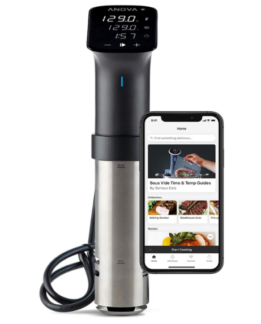
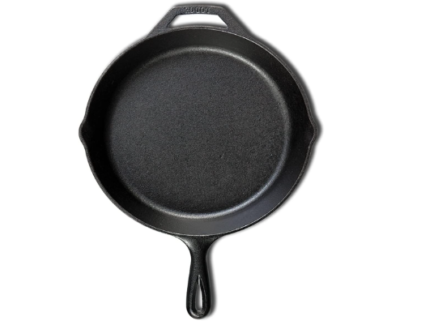
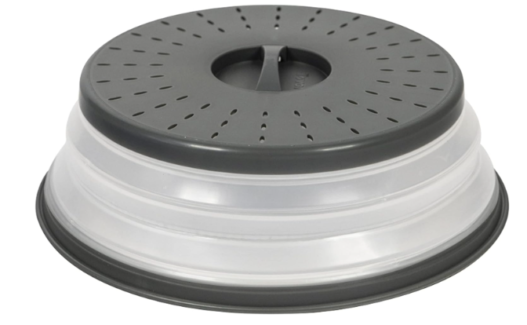
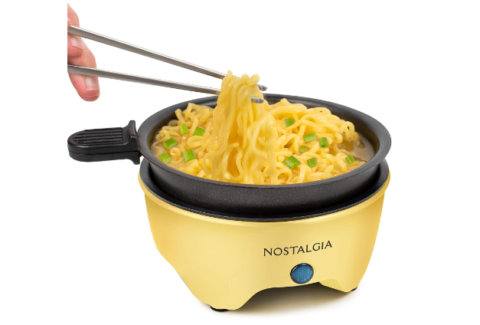
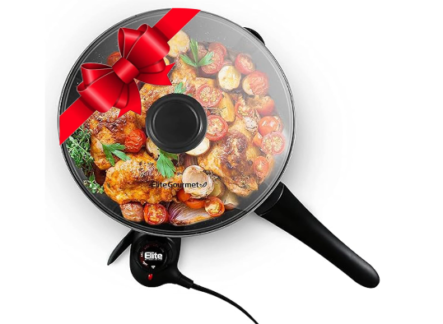
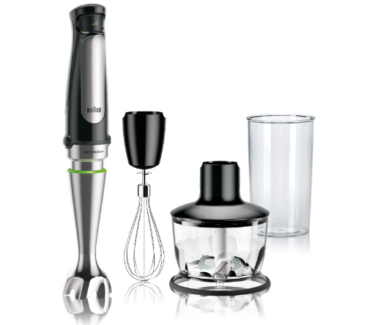
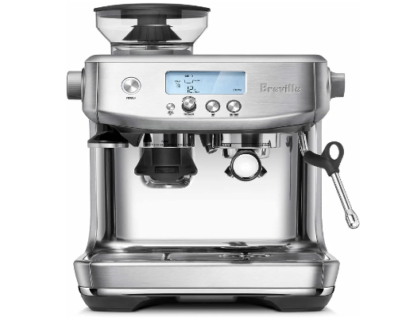
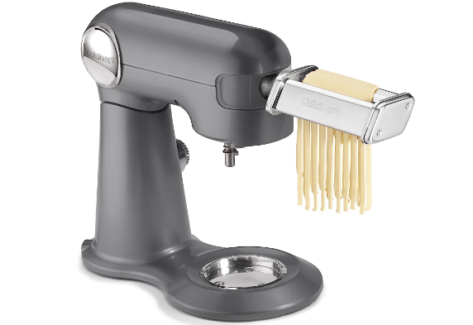
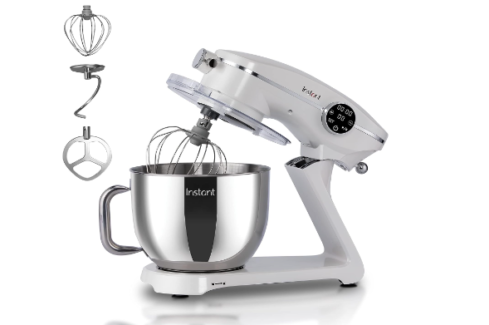

Very insightful article! Its great to see such well-researched content. Lets talk more about this. Check out my profile!